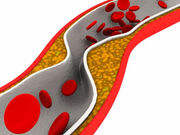October 2016 Briefing – Cardiology
Here are what the editors at HealthDay consider to be the most important developments in Cardiology for October 2016. This roundup includes the latest...
Similar Complication Rate for Transvenous, Subcutaneous ICDs
Nature of complications differs, with more nonlead-related complications for subcutaneous ICD
Benefit of Exercise on Resting Pulse Rate in Seniors Unclear
Statistically significant but clinically small average effect over the course of 2.6 years
Few Changes in Employer-Sponsored Insurance 2013-2014
Only 3.5 percent of employers dropped coverage and 1.1 percent added coverage from 2013 to 2014
Depressive Symptoms Linked to Functional Status in CAD
Patients with class II, III, or IV functional status have increased risk of hospitalization for heart failure
PCI Noninferior to CABG for Left Main Coronary Artery Disease
PCI with everolimus-eluting stent noninferior for composite of death, stroke, or MI at three years
Low and High HDL Tied to Increased Risk of Mortality
Study casts doubt on HDL as an independent cardiovascular disease risk factor
Useful Tips Offered for Addressing Negative Patient Reviews
Doctors should respond quickly, validate patient complaints, demonstrate willingness to take action
Cardiometabolic Syndrome Ups Subclinical Atherosclerosis Risk
High fitness seemed to attenuate the risk in a cohort of men participating in a health screening program
FDA Approves Device to Prevent Recurrent Strokes in PFO Patients
For patients who had prior stroke related to patent foramen ovale



















